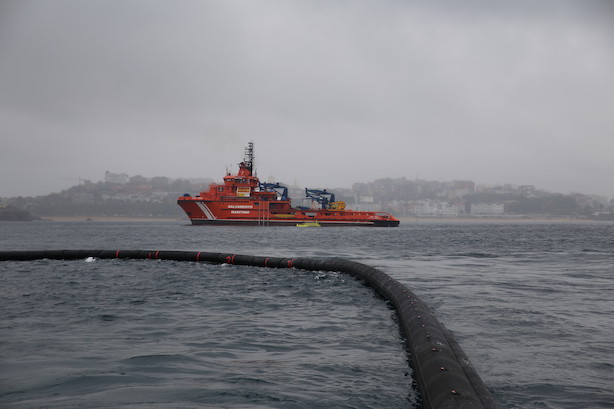Spanish Search and Rescue Service is ready to act without notice; its estimated time of arrival is less than 20 mins. Its priority list after saving lives is to look after the environment, and they pick everything potentially toxic, even the fluorescent lights from the corridors. Those ocean´s guards they shall keep the roads for the ships to sail without threads such as broken vessels, dead animals or any oil spill, intentioned or not.
Ibon Aguinaga, an officer at Spanish SAR, told me about the «cleaning team» routine when they are in action and how they use their tools. They have huge floating barriers, skimmers, a remotely operated vehicle -ROV, for friends- and giant balloons which drag up to 15 tonnes. Aguinaga explained to me the whole process: «Oil pools are not uniform. So the air units provide us with information of ubication, size and shat for us to draw an itinerary and push it with floating barriers to do a ‘U’.


